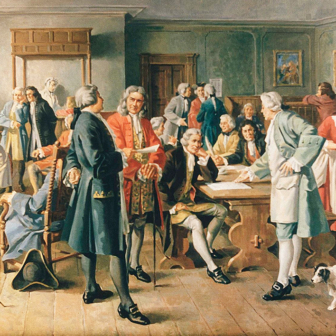Where I’m Reading From: The Changing World of Books
By Tim Parks | Harvill Secker | $34.99
Many decades ago, when I was a (not very hard-working) student, I remember being told that when translating a text, in my case from French to English, it was important not to take a literal approach but to render the French into fluent, idiomatic English. This is no longer a task I have to undertake, but if it were then Tim Parks’s book would cause me some serious doubts, even anxieties. And because he teaches translation at an Italian university and has translated over a dozen major Italian works into English, he knows whereof he speaks.
Where I’m Reading From is a book full of tantalising ideas. Hardly a page goes by without Parks making a provocative point about such matters as translation, the globalisation of literature, what we bring to our reading (do aesthetic considerations outweigh the more broadly cultural influences?), indeed why readers read, why writers write, and many questions about the two processes.
He even queries whether we need to finish books. As an obsessive who feels bound to pursue any book, however tedious, to its last page, I’m trying to take courage from Parks on this topic. His advice is not to “attach self-esteem to the mere finishing of a book, if only because the more bad books you finish, the fewer good ones you’ll have time to start.” Good thinking. But he also claims, more subtly, that sometimes it’s not that one has stopped enjoying the book, only that “I have no desire to go on enjoying it.” With novels, we succumb to a need to “reach the end, because the solution to the tale will throw meaning back across the entire work.” But will it? he asks.
I’m not sure I find him wholly convincing on this matter, but he is elsewhere undeniably astute and stimulating about the relations between writer and reader. He is on the reader’s side when he talks about how novelists at writers festivals scathingly put down as “dumb” questions from the audience about the “life.” He asks why such writers are so determined to “focus exclusively on their novels, as if there were no continuity between writing and life.” As far as he is concerned, there are always reasons why writers tell the stories they do, and in the ways they do, just as readers are not “neutral observers,” with nothing more at stake than a disinterested appraisal of a novel’s aesthetic qualities.
Dealing with biographies in a chapter titled “Writers into Saints,” Parks queries why biographers so often tend to sanitise the writer-subject of their work. He maintains that the result of trying to depict a writer as, above all, an admirable human being “makes the lives less rather than more interesting and harder rather than easier to relate to the writing.” His prime example is Dickens’s biographers, who like to play down his nastier characteristics, such as his treatment of his wife, the mother of his ten children, and his dislike of competition from any quarter, even, perhaps especially, from his own children. Parks tackles the academic critical notion that a revered author is “a solemn soul devoted to profound aesthetic enquiries and invariably progressive narratives.”
This recalls Parks’s earlier questioning of the notion that readers, especially perhaps academic readers, are always keen to credit authors with properly directing their rants against social ills, such as Dickens’s satirical dealings with bureaucracy in Little Dorrit. It is not that Parks wants to diminish literary achievement, it’s rather that he wants to anchor it more persuasively to the life that produced it. As an explanation for the failure of readers sometimes not to come to harmonious terms, or even of understanding, with the writer in question, Parks offers a “failure of two psyches to mesh” or – another possibility – “might not the psyches of writer and reader mesh all too powerfully, but in quarrel rather than harmony?” In formulations such as this, he constantly challenges the way we as readers go about responding to and assessing writers.
A recurring interest in the book is the notion of the globalisation of literature. Parks wonders whether a “world literature” is possible, as he considers how students once studied English or American literature. Such courses gave way to post-colonial literatures, and now to world literature, raising for Parks the question of whether it is still possible to give “a strong sense of the social and cultural settings” in which the books prescribed in such courses are produced.
He suspects that the emphasis is now on “the essential and the universal rather than the local and the accidental.” If so, will this lead to a loss of that specificity about time and place that inducts one into the literary world of such disparate authors as, say, Richard Ford and Ivy Compton-Burnett? And he wonders whether writers who claim to write for themselves, unswayed by audience expectations, are just the ticket for the globalisation project, “uncontaminated” by the community in which they write, their individualism “hand in glove” with the idea(l) of the global.
Will the gains (and he doesn’t rule out the commercial value to authors) lead eventually, in writing for a global readership with English as the vehicle, to a kind of intellectual takeover? And is this prospect rendered the more likely because of America’s dominant position in Anglophone literary culture? Only Americans writing for Americans can be assured of a world readership. When mentioning commercial gains, I had in mind Parks’s comment about how, “if too much money can be damaging, dribs and drabs are not going to get the best out of a writer either.” In other words, this is a book that grapples with major ideas but also, to tangle the metaphor, has its feet on the ground.
The idea of world literature leads Parks to contemplate and interrogate the basis for such awards as the Nobel Prize. In fact, his irreverent response to this award leads him to query its very existence, and write of the “essential silliness of the prize and our foolishness in taking it seriously.” How, he suggests, can any panel come up with a convinced – and convincing – candidate for a prize awarded in Sweden to potential winners whose language, and the culture that produced it, are unknown to the jury, except perhaps in the second-hand way of translation?
As I began by saying, this book raises some key issues in the matter of translation, and Parks supports his views using extracts from Italian versions of Lawrence’s Women in Love and Woolf’s Mrs Dalloway. He illustrates the subtle shifts in meaning that take place as translation is effected not only from one language to another but also from one way of thinking – or being – to another. Style he regards as untranslatable because it is predicated on “a strict relation to a specific readership.”
Juxtapose this last quoted phrase with the sentence that opens Chapter 13: “Is English, and specifically American English, destined to take over the world?,” and you may feel the author has justified his early pronouncement: “I want to toss out a provocation.” For this book is nothing if not provocative but it is not just flashily so: he doesn’t simply provoke, he argues as well, and does so in an often elegant turn of phrase, and draws on an impressively wide frame of reference. I haven’t read Parks’s other books, and feel I now should, exercising all sorts of caution the while. •




